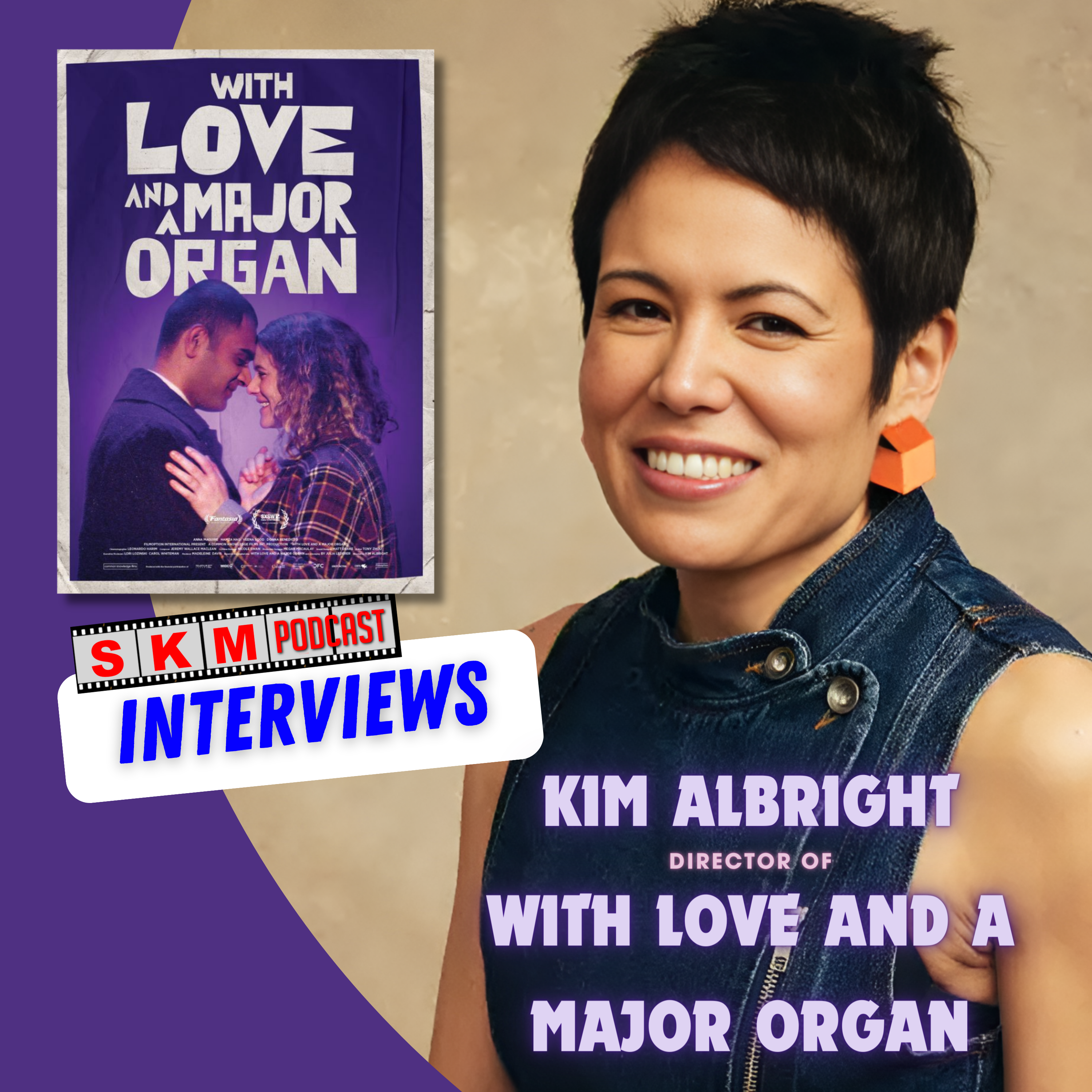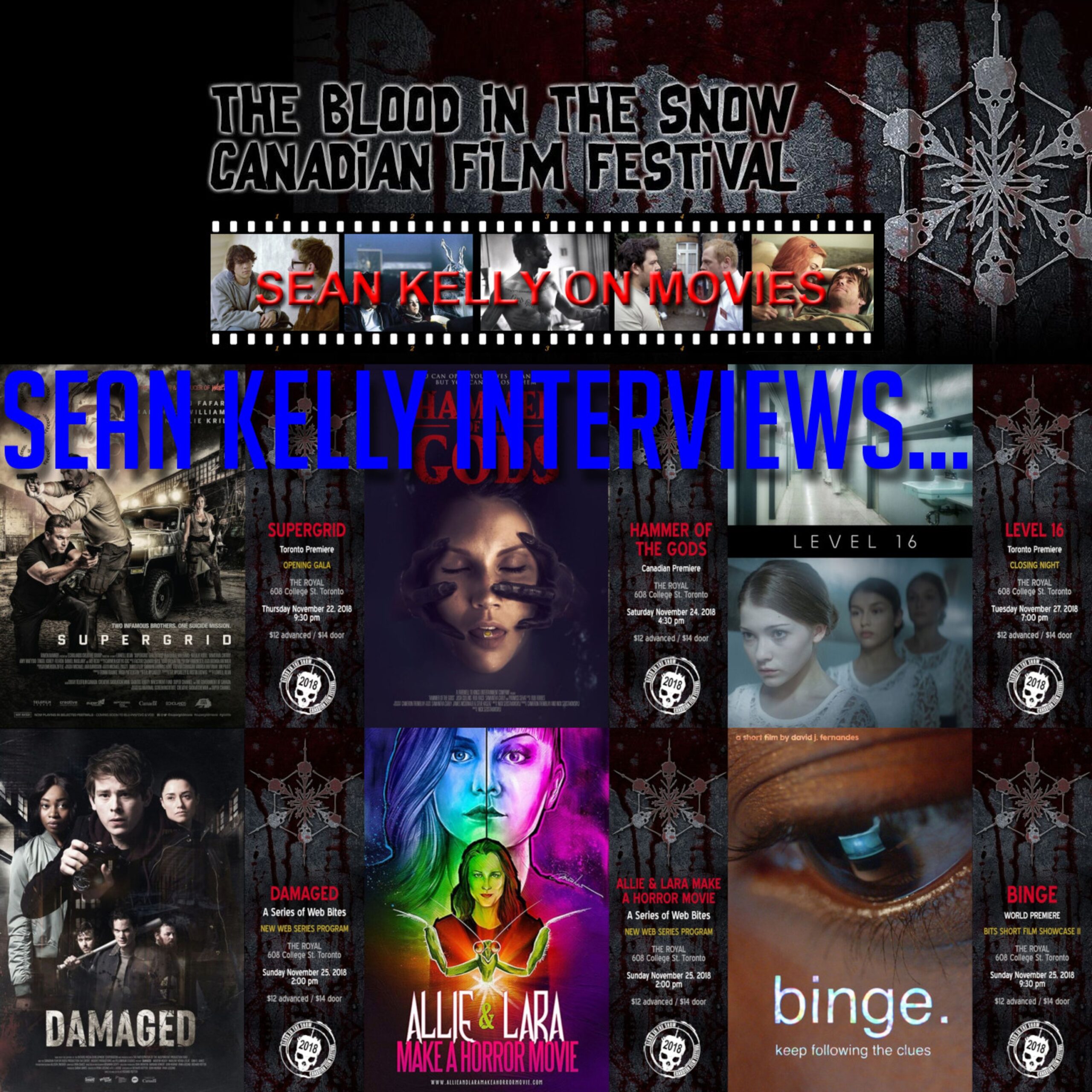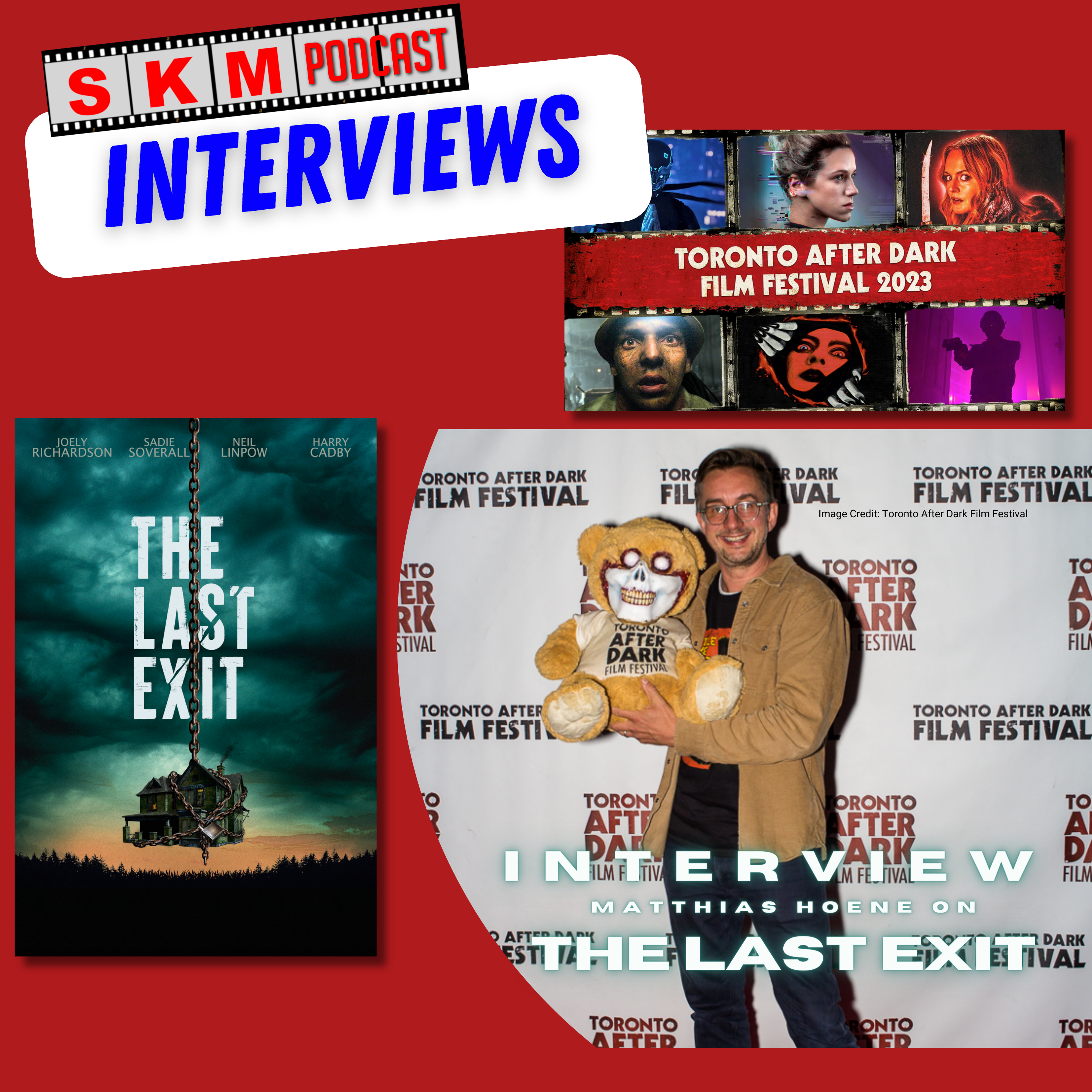Episode Transcript
[00:00:10] Speaker A: This is my interview with writer, director, producer and star Caitlin Sponheimer about Wild Goat Surf. Like, and subscribe for more content like this. Okay, so what was your inspiration for wild Goat surf?
[00:00:23] Speaker B: Well, hi. Sean Kelly. Nice to meet you.
I'm Caitlin.
The inspiration. Yeah, we. Well, I grew up going to Penticton with my family as a kid, and we would also do these really long road trips in our family, motorhome, which is actually the motorhome that's in the film. It's goat and Jane's.
And so I was in my twenties growing up. We hadn't gone back to Penticton in a long time, and I was having a lot of nostalgia over that. So I started to craft that story. But it really grew once I kind of started to do more research on the Okanagan and not just.
Not just, like, pulling from my own memories of how great it was in the summer, but also what it's like when it's not a tourist town.
[00:01:13] Speaker A: So how much of a challenge was it finding the right girl to play goat?
[00:01:19] Speaker B: Yes.
It's interesting because I get asked that about goat a lot. And the real challenge was finding Nate.
We saw so many people for Nate, but Shay Lynn Martin, who plays goat, she really carries the film. So it was actually quite a. We were concerned about it. Like, are we going to find this person? Is it going to be, is she going to be able to carry the film? And for a while, we were kind of offering it to skaters, like young skater girls that we were kind of hoping they could act. And we did this first round of auditions, like, a year before. And Shailen was one of the first people to audition, sent in a tape, and then we went about the process. We did, like, a ton of other auditions, and we, we just weren't seeing somebody. We saw a lot of great young actors, but we weren't seeing someone that, like, had that raw grittiness that we wanted in goat. And then we went back to Shailen's tape because there was this, like, middle part that they didn't edit out. It was definitely a mistake in between the two scenes.
And she's just, like, very independent and snarky herself. Shailene, like, in that tape, talking back to whoever she was working with for, and I was like, oh, that's goat. That's who she is. So we called her back. She had an incredible callback. She's the only person we called back. And I read with her, and she was just so good. Like, she can just do anything, like her imagination, I think, is just so strong, and she's so present. So, yeah, I feel very grateful to find her. And, yeah, she's going to have a great career, I think.
[00:02:50] Speaker A: Well, you brought it up. So could you talk about the casting of Nate and the friendship goat develops with him in the film?
[00:02:58] Speaker B: Yeah, for sure. So Nate was a. Nate was challenging because he's such a just, like, goat, such a complicated character, and some very challenging scenes for a young actor to portray with a lot of honesty and sincerity. And we found, like, Nate has to get really angry at some point. And we found a lot of really amazing actors that were struggling with, I think, allowing themselves to be angry, like, allowing themselves to feel angry. And we went through the process of just. We must have seen, like, we saw so many. So many young actors.
And finally, Leandro came around and sent in a really solid tape. And when we did a callback and really, like, explored the anger that Nate does feel at some point and where it comes from and, like, had a bit of a longer call back and talked about the character.
It was. He just really understood it and understood the depth that Nate needed to have.
And then the relationship between the kids, we did actually do a chemistry read between them and a few other options for Nate with Shailene, because she was our first one cast, and then we based everybody else kind of around that, and they just had, like, immediately such a great connection. And then when they met, we went early to Penticton, and I did rehearsals with all the kids, but especially a lot with Shailene and Leandro. And before they even showed up to the first rehearsal, they had met at the hotel or wherever. Yeah, at the hotel. And they, like, immediately were so close. Like, it was so cool to see.
So that was just. They're gonna be, like, lifelong friends, I think. And I felt, as a director, so lucky. Like, I was like, oh, if we can just film them. Like, I would just see them hanging out, and me and Jo would be like, oh, do we just, like, get them? Joseph Schwierz, the DP were like, do we just kind of, like, try to shoot them when they don't know? And then we'd all, like, go quiet on set and be like, they would catch on pretty quickly.
[00:05:10] Speaker A: Okay, so for much of the film, jane is, like, an absentee parent working two jobs, and goat is, like, idolizing her dead father through surfing magazine. So what would you say is the state of the relationship Jane has of Goethe when the film commences?
[00:05:27] Speaker B: I think they have a very beautiful relationship, despite it being a bit uncouth. I don't know why my mind's using that word, but, yeah, I think there's a deep, mutual understanding between them, between Jane and goat of what their relationship is, and there's so much love there. And I think that goat doesn't know different. And so she might see, like, I think there were scenes that we did cut where Goate was seeing Nate's relationship with his parents and seeing the things that they had and kind of, like, absorbing that her life was different. And I think Jane understands Goat's attachment or grief towards her dad. Cause I think that idolization of her father is actually a very deep amount of pain of somebody not being there. I don't think it's really like, I think her want to surf is. I think that's how she can feel close to him, and I think Jane understands that. I think she misses him, too. And I think Goat is almost like a parent. Like, goat kind of parents herself and even takes care of Jane in certain ways. And there's definitely an immaturity to Jane that I think she's trying to overcome. She's trying to do some good stuff but doesn't always get there.
[00:06:51] Speaker A: So I think, on a kind of, like, related note, while Jane is away, goat often commits, like, petty crimes. So would you say that Jane was truly unaware of these or if she just, like, let them happen because Jane's not an up and up person herself, subletting the house and such?
[00:07:09] Speaker B: Yeah, I think it's not till the end that Jane sees. I don't think Jane's stupid. I think she's smart. I think maybe she chooses sometimes. Like, I have other problems, and, you know, like, I think she probably knows Sharon's telling her the truth. Like, she knows goat's stealing. She knows she gets it. And that was actually, like, a scene that was also cut. Was Jane and Goat having a really lovely conversation about it. But Jane wasn't punishing her. She was just kind of like, we can't do those things. And it was that. It was, like, for Jane, I think it's retaining some integrity in a life that she feels she doesn't have much integrity. So it's like, how dare Sharon call her out? But in private, she talks to goat, like, we can't do those things. And we see a moment of that later when they're sitting in the bathtub and she says that, and then goat says, but you do. And I think it's in that moment that Jane is like, oh, I do. Like, I do this. And I thought I was the adult, and I thought. I thought I could do it because I'm older, but you're seeing my actions. And I love that goat is teaching her something. But goat, like, for me, as the writer of it, not the character in the moment, but as the writer, goat steals. And this is a thing with kleptos. Like, kleptomaix is a lot of times they develop that addiction or that need because they feel such a deep loss of control in their life that the only way for them to control something is like, I have control over taking this. I have control over stealing this. And so making go take those things, it wasn't from a lack of. Maybe part of it was like, an exterior. Exterior motive of, like, I don't have enough money. But I think a big part of it was like, she doesn't have control. So it's really. That's another expression of her lack of control, her grief, the situation she's experiencing. And as, like, a younger person, not able to know what that is and not able to deal with it in maybe a healthier way or have a mother who could teach her in a healthy way.
[00:09:14] Speaker A: Well, you already mentioned your personal connection with the rV. So could you talk about Jane's attachment to the rV, which at one point, she gets angry at goat for painting it?
[00:09:25] Speaker B: Yes, we actually painted it.
And it is. It's actually recited by my dad, who is alive and very well.
But, yeah, that for Jane, that rV. And I don't want to reveal, like, too much stuff. I'm also. So. You're asking such cool questions. But for Jane, like, that is. That's her home.
Sure, they sublet, but, like, that's where they're living.
And it also is. It's clays. Like, that's what she has from him. And so it means so much to her. And I think that's as how goat is attached to this idea of him surfing. I think this home, this RV represents who clay was to her. Even if he wasn't a big part of her life when he was around. I think that's where she finds it. And so when she paints it, it feels like such a dishonor to Jane. And I think thoke could have painted anything else. And I think Jane could have given a shit.
She would have been like, okay. Sharon would have yelled if she painted the bathrooms or whatever. And it's like, jane would have been like, okay, we'll clean it off. But the rv was like, it hurt her. Cause it was like, you're dishonoring your dad.
[00:10:45] Speaker A: So most of the film is goat story, but there is kind of, like, one moment for Jane where pretty much she had enough and, like, loses her temper at a customer in the salon she's working at. So what would you say that is Jane's mindset at this point?
[00:11:01] Speaker B: Loses her temper. I love that, like, synapse.
Yeah, it's funny. That scene was taken out for a long time because me and Sarah Trudel, the editor, who's brilliant, we had, like, a really long cut. Too long. So we were cutting, figuring out what story, and we kept going back to, like, this is goat story. So, like. And we had moments of Jane in that affected goat story, but other than that, we were always with goat, like you said.
And so we actually removed that scene for a long time, and we had some of our exec producers really missed it, and it became a lot of discussion over if we needed to see that side of Jane and see kind of that, like, end of. Like, she's hit. She's hit a wall there. And I think, like, her. What's her state there? I would, like, call it, like, all is lost moment. And Jane is not somebody to, like, go and sob and cry. Like, she'll show that vulnerability to her daughter. But she. She wasn't in front of a customer. She wouldn't be like, I've had a hard day. You know? Like, instead, it became like, you. You're my problem. Anybody could have walked in and she would have. She was ready to pick a fight, and she was trying not to. Like, we see it at the beginning. She's like, no, she had a bad day. She has to go to work at a crappy job. And then this entitled woman comes in. Like, it was that draw that broke the camel's back. And she would never, ever express that to goat in that way. And I think that's what makes their connection so cool. But it was safe for Jane to express it to a stranger. And then she knows right after she's done there. Like, she knows. Yeah. I mean, it was definitely very fun to play.
[00:12:44] Speaker A: So I'll conclude by asking, what do you hope audiences take away from Wild Goat surf?
[00:12:49] Speaker B: Yeah, I think, for me, there's a lot of different levels in the film and different parts one could connect to. And I think that each individual is going to latch onto the part of the story that resonates with them. And so I hope that people watch it absorb the story, absorb the emotions and the characters and take away what resonates with them, what connects to them. I'm putting something out there as an expression of myself, and I feel like now it's everybody's. And, you know, I've heard different things. I didn't even think of that people absorbed from it, and that is so cool to me. So now it has its own now it has its own life, and whatever. Whatever resonates, and I want to hear I want to hear those things. I think it's so cool when you make something and then someone's like, oh, I felt this. I took this away, and that reminded me of this from my childhood, and that's so cool. Like, that's the point of of art and expression and storytelling, really.
[00:13:54] Speaker A: All right, thanks.
[00:13:56] Speaker B: Hey, thanks so much, John. It was really lovely to talk to you. I appreciate you having me on.


